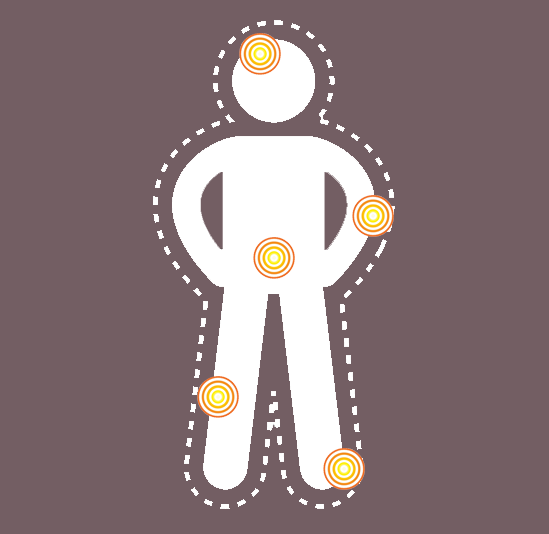Which conditions are covered by Inflammatory diseases & Immune disorders?
Autoimmune and autoinflammatory diseases share common characteristics in that both groups of disorders result from the immune system attacking the body’s own tissues, and also result in increased inflammation.
Immune and inflammatory disorders include an extensive range of conditions including:
- Alzheimer’s
- Ankylosing spondylitis
- Asthma
- Crohn’s
- Diverticulitis
- Fibromyalgia
- Gout
- Lupus
- Osteoarthritis
- Rheumatoid Arthritis
- Rhinitis
- Sinusitis
- Ulcerative colitis
What is an immune or inflammatory disorder?
The immune reaction is how your body recognizes and defends itself against bacteria, viruses, and substances that appear foreign and harmful.
It is closely tied to inflammation, which is a natural reaction to pathogens, damaged cells, injury and infection. Inflammation is a protective response designed to eliminate the initial cause of cell injury, clear out damaged cells and to initiate tissue repair.
However, it is also the primary driver of many medical disorders and autoimmune diseases, including ankylosing spondylitis, arthritis, inflammatory bowel disease (IBD) and allergies as well as many cardiovascular, neuromuscular, and infectious diseases. Current research even suggests that inflammation contributes to premature ageing.
Human evolution has developed highly complex immune systems composed of specialised immune cells to protect us from infection and damage. But an irregular immune response such as chronic inflammation can cause damage.
When your immune system is compromised you become more susceptible to diseases such as autoimmune disease – which occurs when the immune system mistakes its own tissues as foreign and mounts an inappropriate attack on the body.
Excessive inflammation is common in chronic conditions that include multiple sclerosis, Crohn's disease, lupus, rheumatoid arthritis and possibly even diabetes.
Will drugs help treat immune and inflammatory disorders?
Medications can help manage symptoms and, in some cases, may even help slow the progress of immune and inflammatory disorders. However, many of the drugs used may also interfere with the body's ability to fight disease.
It is vital that lifestyle changes, such as a healthy diet, regular exercise, rest, and stress management form the basis of the plan to manage any kind of immune and inflammatory disorder.
How can Foodwise help?
Do you have an immune or inflammatory disorder? Foodwise can help.
Anti-inflammatory pain medications, corticosteroids and immune suppressing drugs are not your only options. We have all the nutritional information and dietary advice to help manage immune and inflammatory disorders naturally and help bring relief to many of their symptoms.
Join nowHow does healthy nutrition help treat immune and inflammatory disorders naturally?
Proper immune function is an intricate balancing act. Since inflammation plays a key role in any immune or inflammatory disease, a dietary and lifestyle approach puts the emphasis on helping reduce inflammation levels in the body and restoring normal immune function.
Many promising foods and nutrients are emerging as potentially beneficial, including vitamin D and omega 3 fatty acids, especially in regards to multiple sclerosis, rheumatoid arthritis, lupus and diabetes.
An effective approach to managing immune and inflammatory disorders includes:
- following a whole food, fibre-rich anti-inflammatory diet
- identifying food allergies and intolerances
- avoiding inflammatory foods (including the nightshade family)
- maintaining a healthy weight
- avoiding toxins
- correcting nutritional deficiencies...
...as well as the appropriate use of natural supplements and home remedies.

